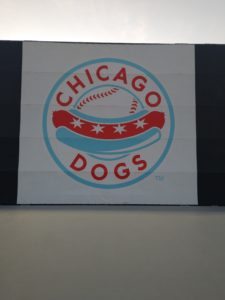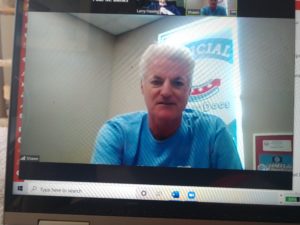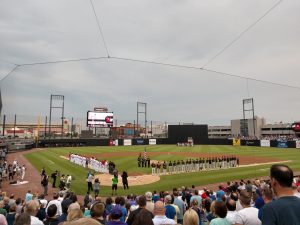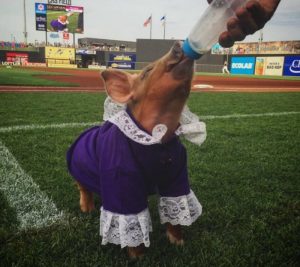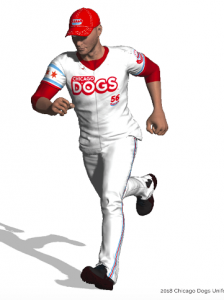“As long as it’s legal, and in good taste, we’re going to do it,” proclaimed Shawn Hunter, co-owner of the minor league baseball team the Chicago Dogs at their inception.
“It’s a chance to be a little irreverent and have a little fun.” Seven years later, it is clear to anyone paying attention that the Dogs have done all that and more.
Hunter brings close to 30 years of sports marketing and executive experience to the table, having previously served as President of the NHL’s Phoenix Coyotes from 1996-2002 and Executive Vice President of the NHL’s Colorado Avalanche and NBA’s Denver Nuggets from 1991-1995.
The 8th person hired by the Minnesota Timberwolves, Hunter maintains that the only thing minor league about this Rosemont baseball team will be the prices.
“Shawn has a long history of doing things that are unexpected,” said the other co-owner of the Rosemont baseball team, Steven Gluckstern at the time of their founding.
Gluckstern has a ton of sports business experience, as he’s been a co-owner of two professional sports teams.
In 1995 he took over as co-owner of the NHL’s Winnipeg Jets.
He and his then co-owner decided to move the team to Phoenix, renaming the team the Phoenix Coyotes (later to become the Arizona Coyotes, and now, they’re off to Utah). Gluckstern and his partner sold the Coyotes in 1997 and later went on to co-own the NHL’s New York Islanders from 1997-2000.
The unexpected is how a minor league team can hook the fans in- see the Archer Men endorsement deal for $3.4 billion dollars, over 10,000,000 years, with Windy City Thunderbolts pitcher Clay Chapman contract.
Better yet, take the St. Paul Saints, who have a trained pig delivering baseballs to the home plate umpire.
The Saints, and the league they play in, the American Association, are both the gold standard of indy ball.
In many ways this Rosemont baseball franchise is modeled after the Saints, who were originally one of their league rivals. The Saints have proven that they can compete in a marketplace with a pro team, and the Chicago Dogs have shown that they can do the same.
Another part of their front office is Tom Sheridan, a Senior Vice President of Business Operations for 23 years with the Chicago White Sox.
In his more than two decades on 35th street, Sheridan helped create the scout seats, home plate club and fan deck.
The Chicago Dogs are unaffiliated, or independent from the major and minor league system. They do not serve as a farm club for any Major League team.
The recent boom in unaffiliated teams is likely filling a void that was created when they MLB franchises cut back on the size of their systems and exported much of their investments in player development to countries not subject to the draft.
In other words, what every single American corporation tries to do whenever possible: outsource jobs to countries with lower wages, looser labor laws and no workers union protections.
The Chicago Dogs players are all on one-year-contracts.
Hunter said that the quality of baseball itself is on par with AA ball. When pressed about the consumer’s ability to discern between unaffiliated and affiliated ball, he said most fans don’t really differentiate.
Paul M. Banks is the Founding Editor of The Sports Bank. He’s also the author of “Transatlantic Passage: How the English Premier League Redefined Soccer in America,” and “No, I Can’t Get You Free Tickets: Lessons Learned From a Life in the Sports Media Industry.”
He currently contributes to Ravens Wire, part of the USA Today SMG’s NFL Wire Network and the Internet Baseball Writers Association of America. His past bylines include the New York Daily News, Sports Illustrated, Chicago Tribune and the Washington Times. You can follow him on Linked In and Twitter.
